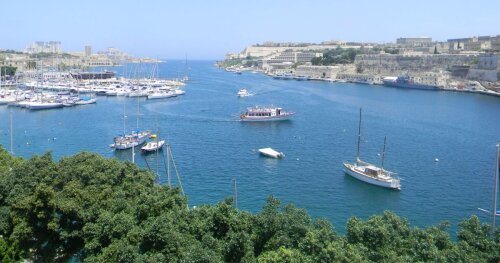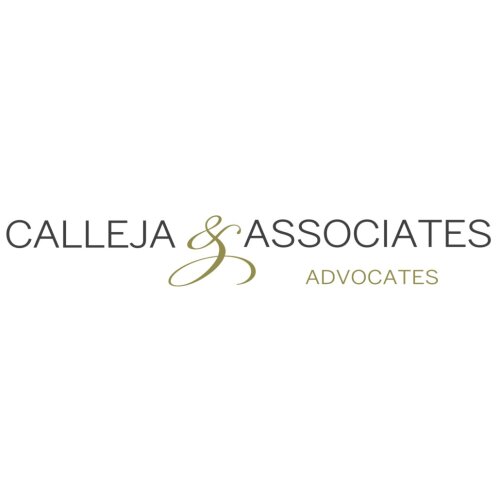Best Environmental Law & Compliance Lawyers in Malta
Share your needs with us, get contacted by law firms.
Free. Takes 2 min.
Or refine your search by selecting a city:
List of the best lawyers in Malta
About Environment Law in Malta
Malta, being a small island nation in the Mediterranean, places significant importance on environmental conservation and sustainable development. The country's environmental law framework is designed to protect its natural habitats, marine environments, and biodiversity, while also addressing challenges like pollution control, waste management, and climate change adaptation. Environmental laws in Malta are influenced by European Union directives, international treaties, and local legislative measures developed to reflect the unique ecological needs of the region.
Why You May Need a Lawyer
There are several scenarios where an individual or business might seek legal advice in the field of environment in Malta. Common situations include:
- Compliance and regulatory issues related to environmental laws.
- Disputes over land use, especially in areas designated as environmentally sensitive or protected.
- Challenges against local governmental decisions regarding permits and environmental impact assessments.
- Cases of environmental pollution or degradation that may involve litigation or the need for remediation measures.
- Advice on sustainable business practices and obtaining environmental certifications.
- Defending against accusations of violating environmental laws or regulations.
Local Laws Overview
The environmental legal framework in Malta is primarily governed by several key statutes and regulations, including:
- The Environment Protection Act, which outlines the country’s approach to fostering a balance between development and environmental protection.
- The Development Planning Act, which controls land use and spatial planning across Malta.
- Regulations under the European Union’s directives, such as the EU Water Framework Directive and the EU Waste Management Directive, which have been incorporated into local laws.
- The Flora, Fauna, and Natural Habitats Protection Regulations, safeguarding biodiversity and species.
- Coastal and marine law provisions focusing on the sustainable use of marine resources and protection of marine environments.
- A robust framework for the handling of environmental impact assessments (EIAs), ensuring that all major developments are evaluated for potential ecological impacts.
Frequently Asked Questions
What is the Environment Protection Act?
The Environment Protection Act is a key piece of legislation in Malta that provides the legal basis for protecting the environment and promoting sustainable development.
How does Malta incorporate EU directives on the environment?
Malta incorporates EU environmental directives by transposing them into national law, adapting them where necessary to address local environmental challenges and regulatory practices.
What is an Environmental Impact Assessment (EIA)?
An EIA is a study required for certain projects that assesses their potential environmental effects to help decision-makers in granting development permits.
When do I need an EIA?
An EIA is required when a proposed development or project is likely to significantly affect the environment, particularly in ecologically sensitive areas.
How can companies comply with waste management regulations?
Companies must adhere to regulations by classifying, treating, and disposing of waste responsibly, often with guidance from local environmental authorities.
What should I do if I encounter environmental pollution?
Report the pollution to the Environment and Resources Authority (ERA) and consider seeking legal advice if necessary, especially if damages or health risks are involved.
Who is responsible for addressing pollution in Malta?
Responsibility varies depending on the pollution source, ranging from individuals and companies to local authorities, in coordination with the Environment and Resources Authority.
Can local residents influence environmental decisions?
Yes, public participation and consultation in environmental decision-making are encouraged, with processes allowing for feedback on EIAs and development applications.
What laws protect Malta’s biodiversity?
The protection of biodiversity in Malta is primarily ensured by the Flora, Fauna, and Natural Habitats Protection Regulations, among other local and EU regulations.
What is the role of the Environment and Resources Authority (ERA)?
The ERA is Malta's central authority responsible for environmental regulation and enforcement, advising the government and issuing permits and enforcement notices on environmental matters.
Additional Resources
For more information and assistance on environmental legal matters in Malta, consider reaching out to the following resources:
- Environment and Resources Authority (ERA)
- Malta Chamber of Commerce, Enterprise, and Industry (for environmental compliance guidance)
- Maltese Environmental NGOs such as BirdLife Malta and Nature Trust Malta
- Legal firms specializing in environmental law
- Malta’s Ministry for the Environment, Climate Change, and Planning
Next Steps
If you require legal assistance in environmental matters in Malta, take these next steps:
- Identify the specific environmental issue or legal question you need help with.
- Research and contact legal professionals specializing in environmental law for initial consultations.
- Gather all relevant documentation, such as permits, correspondence, and evidence of any environmental issue or infraction.
- Engage with local organizations or governmental bodies for guidance and information on your specific concerns.
- Consider the potential for mediation or negotiation before pursuing formal legal action, which can often lead to quicker, less costly resolutions.
Lawzana helps you find the best lawyers and law firms in Malta through a curated and pre-screened list of qualified legal professionals. Our platform offers rankings and detailed profiles of attorneys and law firms, allowing you to compare based on practice areas, including Environmental Law & Compliance, experience, and client feedback.
Each profile includes a description of the firm's areas of practice, client reviews, team members and partners, year of establishment, spoken languages, office locations, contact information, social media presence, and any published articles or resources. Most firms on our platform speak English and are experienced in both local and international legal matters.
Get a quote from top-rated law firms in Malta — quickly, securely, and without unnecessary hassle.
Disclaimer:
The information provided on this page is for general informational purposes only and does not constitute legal advice. While we strive to ensure the accuracy and relevance of the content, legal information may change over time, and interpretations of the law can vary. You should always consult with a qualified legal professional for advice specific to your situation.
We disclaim all liability for actions taken or not taken based on the content of this page. If you believe any information is incorrect or outdated, please contact us, and we will review and update it where appropriate.
Browse environmental law & compliance law firms by city in Malta
Refine your search by selecting a city.















